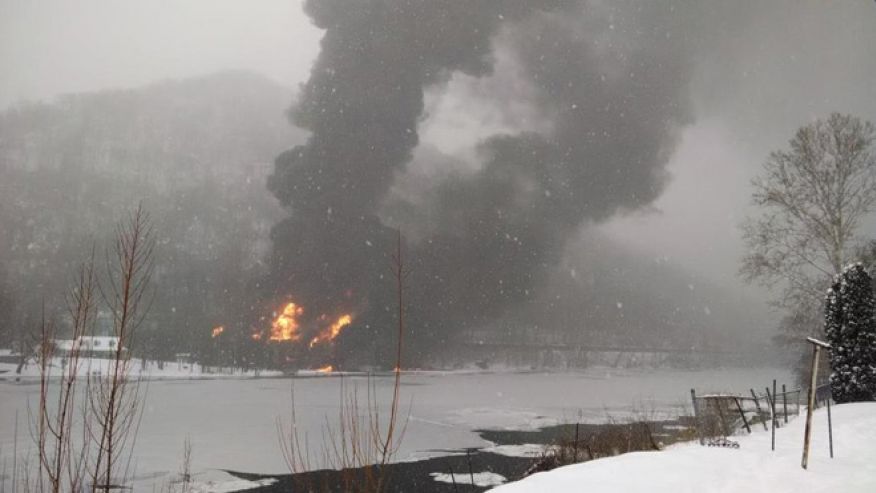[colored_box color=green]Photo credit Bob Aaron[/colored_box]
DRC Members – armed with information – challenge Dalrymple Administration to do better at regulating volatile oil
Bismarck– Dakota Resource Council released the following statement today to challenge Gov. Dalrymple, who yesterday showed a troubling disregard of real problems with exploding Bakken oil trains and to information from North Dakotans that is different than he gets from oil industry leaders:
DRC STATEMENT:
Dakota Resource Council members are very well informed about the impacts of oil development in North Dakota. Most DRC members are farmers, ranchers, small business people, workers and others who live, work and deal with the impacts of the Dalrymple Administration’s lackadaisical oil regulation every day.
Using personal experience and research, DRC members and staff testified at the North Dakota Department of Mineral Resources hearing on conditioning the highly volatile Bakken crude. DRC suggested a method to reach safer standards, such as oil companies follow in Texas. Instead, North Dakota officials adopted new rules that are not much more than window dressing. While the Dalrymple Administration decided to ask companies to condition oil to 13.7 psi before loading it on trains, DRC suggested taking more of the gas out of the oil through a stabilizing process. The new North Dakota process falls far short of safe and doable standards. The train explosion of North Dakota oil that killed 47 people in Quebec was at 9.3 psi. We can and should do better.
Gov. Dalrymple is either listening only to oil company CEOs on this issue or he is unaware of how his lack of credible regulation of North Dakota oil impacts people living in North Dakota and along the railroads in the United States and Canada.
###
Founded in 1978, Dakota Resource Council is a statewide, multi-issue organization bringing together farmers, ranchers, small business owners, workers and other North Dakotans to address issues that affect their lives and livelihoods.

